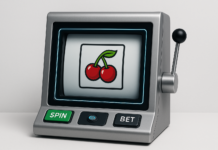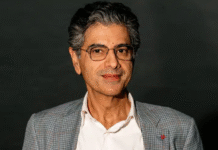France is lobbying hard to secure an exemption for champagne and other alcoholic beverages from new US tariffs, as the EU continues negotiations with Washington ahead of a trade deal expected to take effect Friday.
The agreement, reached last weekend between the EU and US President Donald Trump, has caused confusion in both Brussels and Paris. A new 15% tariff will soon apply to most EU goods entering the US, but the full list of exemptions remains unclear.
While the EU claims talks are still ongoing—particularly around alcoholic drinks—US officials have said there will be no exemptions for wine or spirits, including champagne.
French finance minister Éric Lombard told Libération that the exemptions granted to the aviation sector should extend to alcohol. Junior trade minister Laurent Saint-Martin suggested France may have already secured that status for spirits like cognac: “We understand that spirits are indeed exempted,” he said.
French officials have not publicly addressed whether wine and champagne are included, though a finance ministry source confirmed efforts are underway to secure full exemption for all alcoholic beverages.
“We seem to be further along on spirits than on wine, but discussions continue,” said one EU official. A senior EU diplomat echoed this, saying spirits were likely excluded from tariffs, while wine remains under negotiation.
France is the EU’s largest alcohol exporter, accounting for €12.1bn in 2024, or 41% of total exports—two-thirds of which was wine. Nearly a third of those exports go to the US. Italy, the EU’s second-largest alcohol exporter, supports France’s push, having exported €6bn worth in 2024.
French billionaire Bernard Arnault, head of luxury conglomerate LVMH and a guest at Trump’s January inauguration, has been personally lobbying both the Trump administration and EU officials. In an op-ed in Les Échos, Arnault warned the omission of wines and spirits “exposes a flagship sector of European viticulture to great uncertainty” and urged for clarity.
LVMH owns Moët Hennessy—global leader in cognac and a dominant player in champagne with brands like Veuve Clicquot. Competitors Rémy Cointreau and Pernod Ricard also face potential setbacks from tariffs, given their reliance on exports to the US.
The lack of clarity around alcohol reflects broader confusion over the trade deal’s details. While the EU says it secured tariff exemptions for aircraft, some chemicals, pharmaceuticals, and raw materials, neither the European Commission nor the White House has clarified the position on alcohol. Contradictory factsheets have also added to the uncertainty.
A final joint statement with definitive product lists is expected Friday, coinciding with Trump’s planned executive orders enacting the tariffs.
Industry groups have warned that additional duties could severely harm the sector. Ignacio Sánchez Recarte of CEEV (the European wine industry group) said the sector has faced “great uncertainty” since Trump’s threat in March of a 200% tariff, which briefly froze exports. A 10% duty imposed in April cut turnover by 12%, worsened by unfavorable exchange rates.
“There’s been no new investment and a lot of nervousness,” he said. The French wine and spirits export association echoed the concern: “A catastrophe has been avoided, but the coming days are crucial.”
Before the April tariffs, EU spirits and beer entered the US duty-free. Wine carried a small duty—$0.06 per litre—and sparkling wine, $0.20 per litre.
LVMH, Pernod Ricard, and Rémy Cointreau declined to comment.













